Summer Place, A (1959)
“Are you bad, Johnny? Have you been bad with girls?”
|
Synopsis: |
|
Genres, Themes, Actors, and Directors:
Response to Peary’s Review: and Ford is deliciously diabolical.” Indeed, there is so much overwrought melodrama and laughable dialogue in this soaper it’s hard to know where to begin in a critique. For instance, abusive Ford subjects Dee to a full physical examination after she’s been shipwrecked for a night with Donahue, despite Dee crying out in agony:
Eventually, of course, Donahue and Dee’s love for one another transcends their parents’ fruitless attempts to keep them apart and they land in the Ultimate Trouble. Meanwhile, Kennedy’s alcoholism continues to worsen: while McGuire and Egan live out their newly validated romance in a Frank Lloyd Wright house by the shore. How will everything work out for the young lovers? You’ll have to watch to see — but be forewarned that Max Steiner’s recognizable score will remain stuck in your head indefinitely. Redeeming Qualities and Moments: Must See? Categories
Links: |
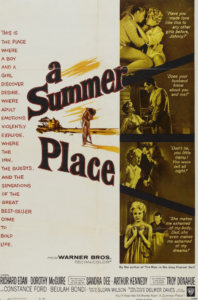
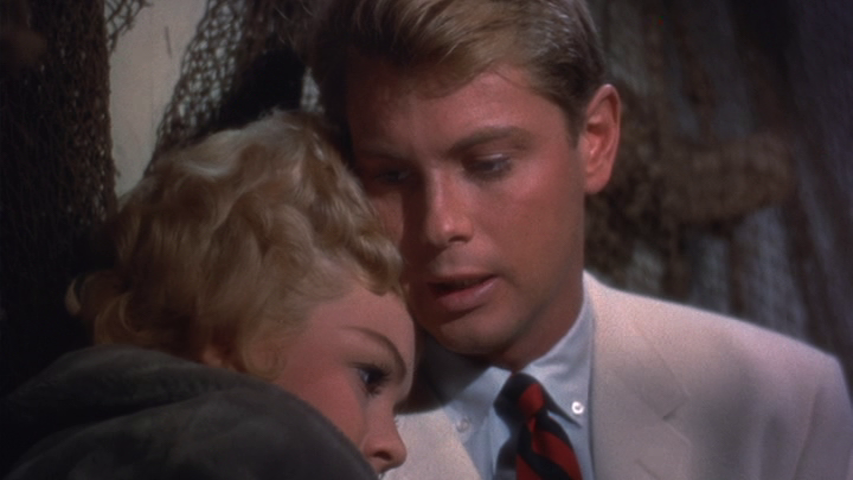
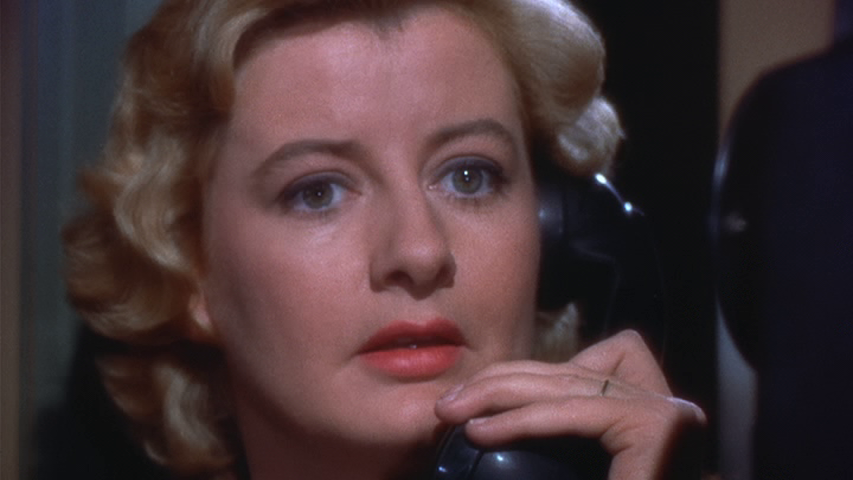

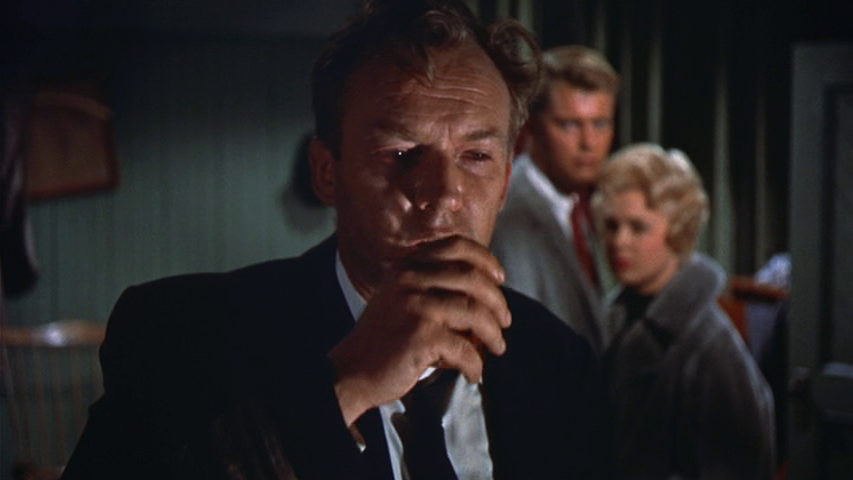
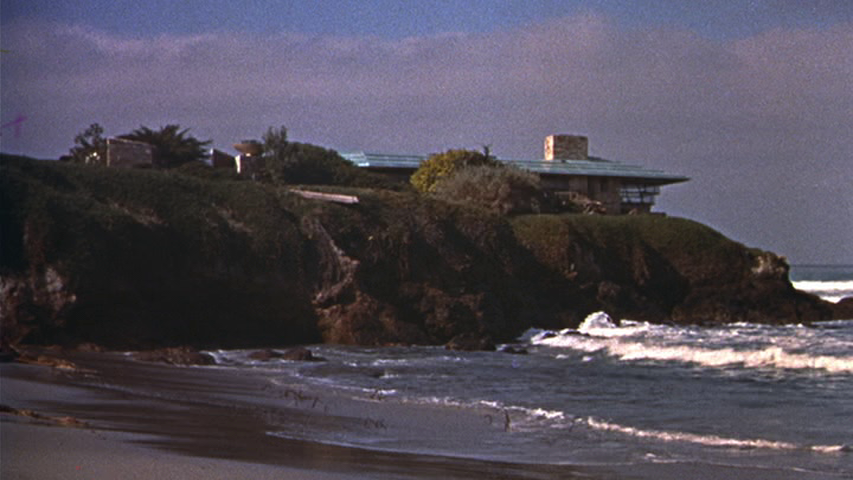
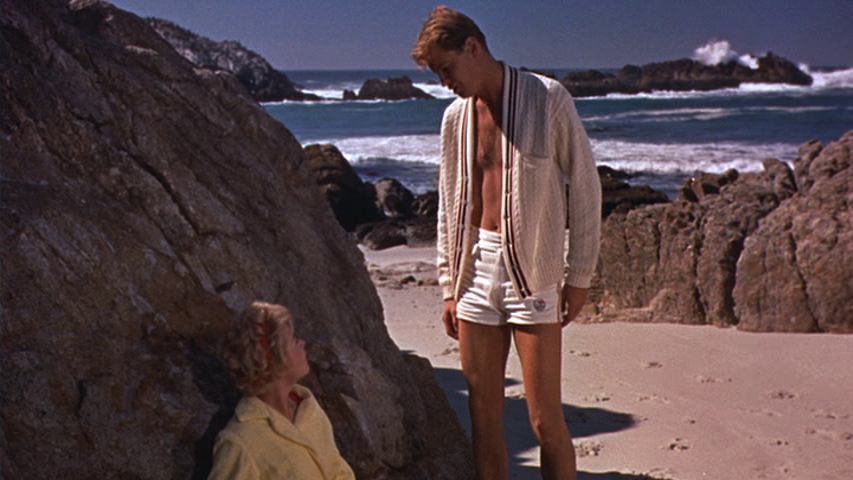
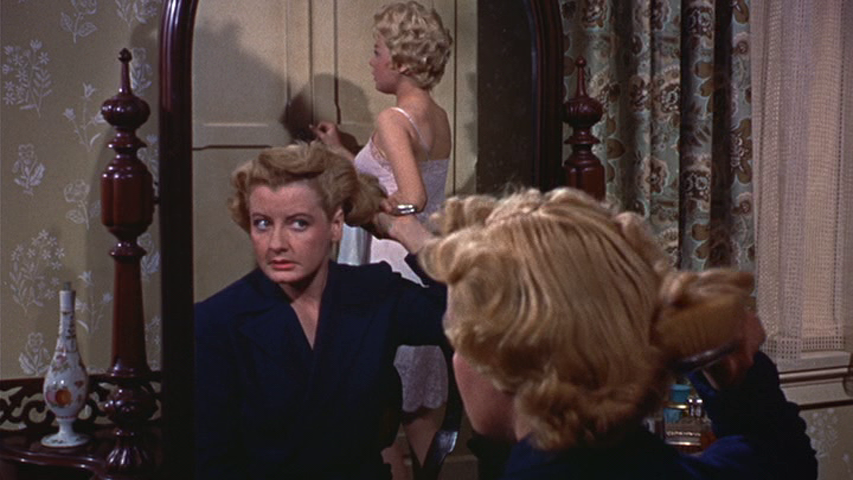

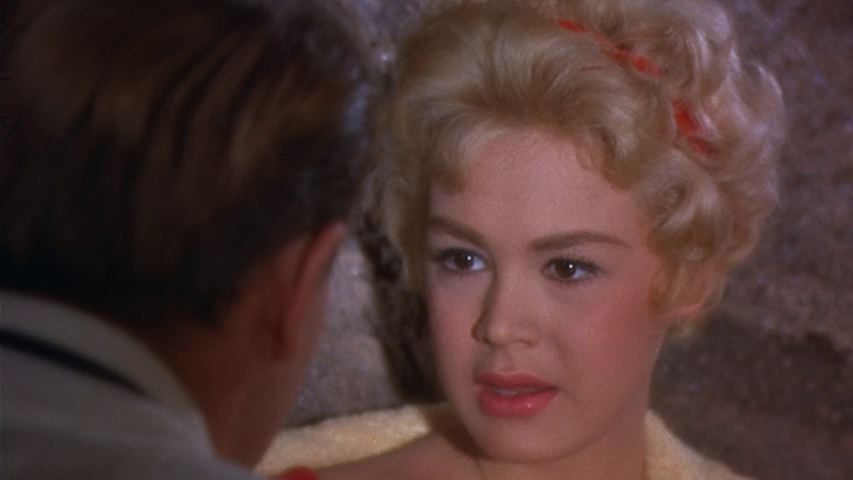
One thought on “Summer Place, A (1959)”
A once-must, for its place in cinema history.
It’s all-too-easy to view ‘ASP’ as a camp classic. Not that it should shy away from that designation; it certainly has enough cheesy dialogue to deserve it. (And not just dialogue; it has camp-classic moments such as Ford slapping Dee , who goes reeling – right into a Christmas tree! 😉 )
But I can imagine the powder keg that this movie must have been in 1959, when it got itself slapped with a ‘Condemned’ rating from the Catholic Legion of Decency. Imagine: putting adultery, divorce and teen sex together in one movie?! (in beautiful, glossy color, with a romantic score, no less!), and thinking it would get away with that?! 😉
‘ASP’ was the perfect ‘bridge’ movie that took views on morality kicking-and-screaming out of the ’50s and tentatively (but with an encouraging push) into the ’60s. So it sort of makes sense that the movie itself (calculated and exaggerated as it is) reflects that transition awkwardly for effect.
This isn’t just your average ‘suds’ flick. Yes, much of it reads as silly (and sometimes leaves you thinking, ‘Who talks this way?!’) – but much of it is also the soaking-in-social-commentary transition film that it was in 1959.